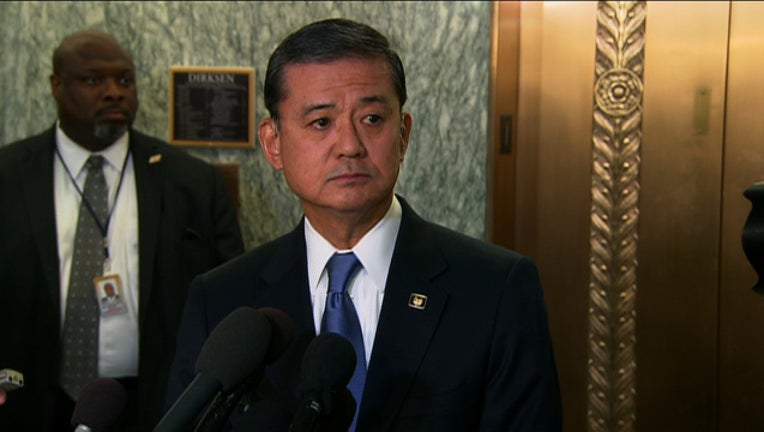Were bonuses tied to VA wait times? Here's what we know

Former Secretary of Veterans Affairs Eric Shinseki (Photo: CNN)
(CNN) -- It's one of the more disturbing revelations to arise from an investigation into fatal delays in care at Veterans Affairs medical centers: Employee bonuses appear to be one factor behind the manipulation of patient wait times in at least one hospital.
Two reports released this week -- one by the VA's inspector general and another by the Secretary of the Department of Veterans Affairs -- indicate in some cases wait times were manipulated to meet employee performance goals needed for bonuses.
The news has raised questions about just how widespread the practice was and who received the financial incentives.
Answers from the VA have been harder to come by.
Here's a look at what we know:
What did the reports reveal?
At the Phoenix VA patient wait times were directly tied to VA employees' bonuses and raises. By manipulating doctor's appointments for the veterans, the wait time to see a doctor appeared to be shorter, a factor considered in VA employee bonuses and raises, according to a VA inspector general report said.
The VA secretary's audit of a number of medical centers that concluded "some front-line, middle, and senior managers felt compelled to manipulate" the scheduling process to meet performance goals established by the agency.
Who benefited?
By all indications, from the reports and congressional testimony, the practice involved high-level managers in at least the Phoenix VA medical network.
Neither report identified managers by name or position.
How much money?
There is no easy answer to this. Performance incentives are typically tied to a number of factors, and the VA has not detailed how much of a role patient wait times may have played.
Who knew about it?
There is no hard and fast answer.
The first public revelation that salary increases and bonuses may have been a factor came with the release of the agency's inspector general report.
The House Committee on Veterans Affairs also asked the question during a combative hearing this week, where Rep. Dan Benishek, R-Michigan, inquired whether there was a financial motivation to manipulate appointment schedules at the Phoenix VA.
"That is a discussion the (VA inspector general) is having," Dr. Thomas Lynch, the VA's assistant deputy undersecretary for clinical operations, said.
How widespread is the problem?
It appears the VA, itself, is still trying to answer that question, citing the ongoing inspector general's investigation. A final report is due in August.
The issue of patient wait times is not an overall performance factor ordered by the VA, Lynch recently told the House Committee on Veterans Affairs.
The factors tied to bonuses and raises are decided by each VA network, Lynch said.
But the VA also appeared to indicate in its audit that its mandate to improve wait times may have played a role.
As a result of the audit, the VA suspended financial incentives -- bonuses and salary increases -- for all Veterans Health Administration executives for the 2014 fiscal year.
™ & © 2014 Cable News Network, Inc., a Time Warner Company. All rights reserved.

